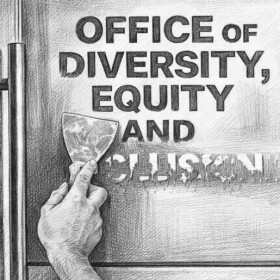
The Source
Monday-Thursday from noon-1 p.m. on KSTX
The Source is a daily, one-hour call-in talk program that gives listeners in San Antonio the opportunity to call and connect with our in-studio guests and city-wide audience.
The Source seeks to give life, context and breadth to the events and issues affecting San Antonio by bringing newsmakers and experts to the public, and highlighting the people being affected by the news of the day.
The show is hosted by veteran journalist David Martin Davies.
Tune in to The Source for insightful discussion and analysis on topics that matter to residents of the Alamo City.
Contribute to the conversation:
- Call or text during the live show at 833-877-8255.
- Leave a voicemail at 210 615-8982 anytime. Submissions may be played on-air.
- Email comments to thesource@tpr.org.
Latest Episodes
-
The current right-wing view is that DEI is bad for America. It’s been banned from Texas and national public policy. Diversity, equity and inclusion make up an idea to promote the fair treatment and full participation of all people, particularly those from underrepresented or marginalized groups. So what does the evidence tell us about DEI? And how has it helped business, education, justice and democracy?
-
Early voting kicks off in Texas for the March 3 political primaries. The big races to watch are in both major parties for U.S. Senator. Who will the Republicans and the Democrats pick for their nominees? And what’s happening down ballot? Is there a blue wave coming in November?
-
Recently the slavery exhibit was removed at Independence National Historical Park, The Pride flag was removed at Stonewall National Monument and at the Smithsonian references to President Trumps impeachments were taken down. We hear from Jason Stanley, the author of “Erasing History – How Fascists rewrite the Past to Control the Future.”
-
The race for the Democratic nomination for Bexar County judge is on. Former Mayor Ron Nirenberg joins us for the first half hour. He's followed by incumbent County Judge Peter Sakai. We’ll hear from each candidate separately about his vision for Bexar County, Project Marvel, economic development and more.
-
The polls look grim for Republicans heading into the midterms — and recent special elections look even worse. President Trump has reacted by calling for the Republican party to take over the elections entirely. Advocates for free and fair elections are calling this a warning sign. What could happen and how can we protect our elections?
-
Conditions inside the family immigration detention facility in Dilley, Texas are drawing renewed scrutiny as detainees, attorneys and advocates describe shortages in medical attention, inadequate and substandard food and water, and serious mental-health strain — allegations that federal officials and the private operator dispute.
-
Texas state leaders are threatening sanctions against school districts and disciplinary action against educators after a wave of student walkouts protesting federal immigration enforcement.
-
A month after the U.S. raid and capture of then-President Nicolas Maduro upended Venezuela, the initial shock has given way to a mix of uncertainty, hope and disappointment. Maduro's government remains in power. Donald Trump said he’s the acting president. There are no signs of new elections. The economic collapse continues. FRONTLINE PBS investigates what life is like now in Venezuela.
-
After U.S. Immigration and Customs Enforcement purchased a massive warehouse on the city’s East Side for a migrant detention center, San Antonio Mayor Gina Ortiz Jones said she is looking into how the city can push back.
-
Should San Antonio have a diversion center? It could allow people with mental illness or intellectual disabilities to avoid going to jail for low-level misdemeanors and instead get treatment. It would help with overcrowding at the Bexar County Jail and could help direct people away from the cycle of the criminal justice system and into getting the help they need.











